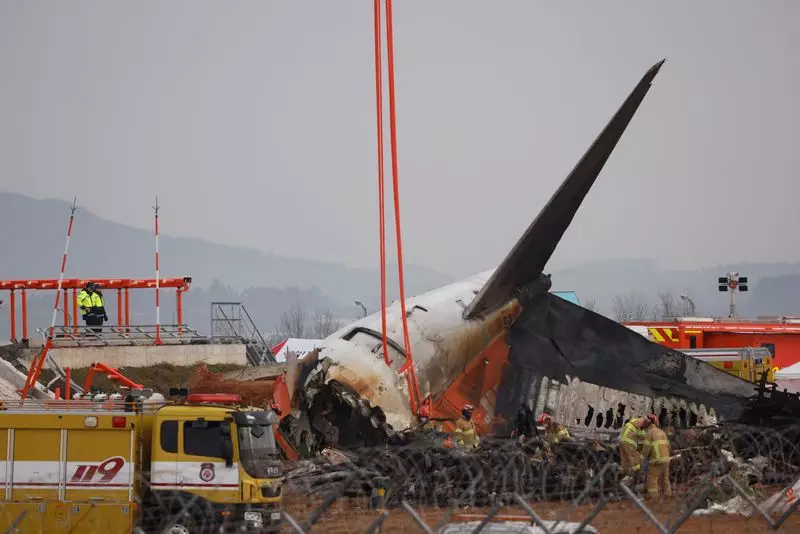The aviation industry in South Korea has undergone significant transformation over the past two decades. With the rise of budget carriers like Jeju Air, the landscape has become increasingly competitive. Jeju Air, established in 2005, quickly ascended to become the nation’s third-largest airline based on passenger volume. However, as the airline has expanded its reach, it has also faced challenges typical of low-cost operators, including maintaining safety standards amidst growth pressures.
The tragic event at Muan International Airport that claimed 179 lives marks a dark chapter for South Korean aviation history. Following this devastating accident, Jeju Air’s shares plummeted to unprecedented lows, demonstrating the market’s immediate response to a significant breach in consumer trust in the airline’s safety policies. The stock fell 8.5% on the day of the crash, reaching a record low of 6,920 won, reflecting a staggering loss of 95.7 billion won ($65.2 million) in market capitalization.
The repercussions of this incident extended beyond Jeju Air, affecting related entities, including AK Holdings, which experienced a 12% decline in its stock values, indicative of an investor panic not limited to just one airline.
In a bid to mitigate the fallout, South Korea’s acting President Choi Sang-mok announced a comprehensive safety inspection of the entire airline operation system post-recovery efforts. This move underscores the government’s intention to restore faith in an industry that has now endured a catastrophic event. However, analysts like Yang Seung-yoon warn that the road to recovery may be fraught with challenges. The credibility of budget airlines hinges heavily on perceived safety, especially when comparable service offerings blur the lines of differentiation among competitors.
Consumer sentiment is likely to remain subdued, leading to a short-term decline in travel demand and cancellations. Reports indicate that travel agencies have experienced a sharp decline in bookings, with some vacation packages seeing cancelled bookings double, illustrating the ripple effect across the tourism sector due to this tragedy.
Moreover, the crash has repercussions extending beyond just airline stocks; travel agency stocks have similarly been affected. Companies like Hanatour Service and Very Good Tour faced significant declines of 7% and 11%, respectively, during the immediate aftermath. This trend signals a larger crisis in consumer confidence as holiday travelers reconsider their plans in light of safety concerns.
Despite these setbacks, analysts believe the structural demand for air travel in South Korea will remain resilient. While the immediate psychological impact cannot be understated, the long-term effects on travel habits will depend largely on how swiftly the industry can demonstrate improvements in safety protocols and regain the public’s trust.
The tragedy at Muan International Airport serves as a stark reminder of the paramount importance of safety in the aviation industry. The incident not only poses existential questions for Jeju Air but also reverberates throughout the South Korean aviation landscape, prompting an urgent call for introspection and reform across the sector.

